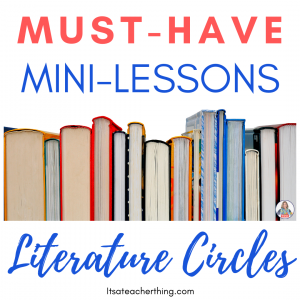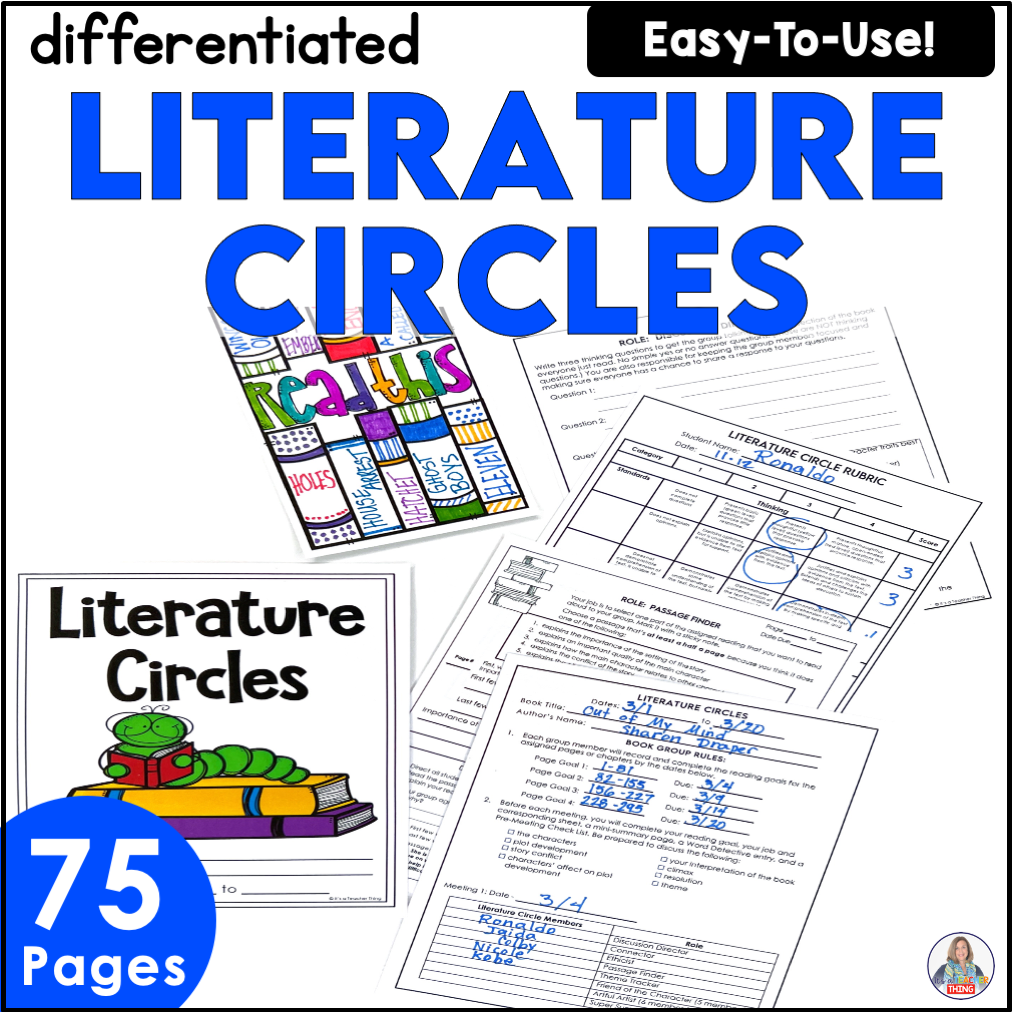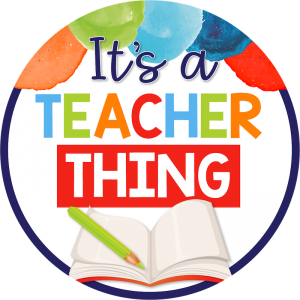
Literature circles and mini lessons go hand-in-hand. Literature circles are a great way to supplement your reading program, and they are rewarding for both teacher and student, but understanding the prep work it takes as a teacher will ensure that your students get the most out of their literature circles experience.
There are literature circles mini lessons you’ll want to teach your students before the first day of literature circle meetings. These can be 5-10 minute lessons, some of which will build on or remind students of a previous lesson. You can also teach mini-lessons right before a meeting begins, but keep it short. Read this blog post on the teacher’s role in literature circles.
Here’s a list of literature circle mini lessons to teach before your first literature circle meeting.
Essential Literature Circles Mini Lessons
How To…
- fill out the reading schedule so pages are completed before the meeting.
- complete each work page in the student packet.
- use a checklist so students can keep track of what’s completed and what’s not.
- track the number of pages you need to read by the next meeting and break the pages down by how many need to be read each day before the meeting.
- have a discussion with a group of students.
- agree and disagree with each other.
- listen (body language & eye contact).
- add a comment to a discussion.
- address someone who disagrees with you.
- keep a conversation going.
- politely ask what another student thinks.
- speak your piece/opinion.
- assign next meeting’s assignments.
- answer someone’s questions.
- ask a higher-level question.
- keep your voice level within your group setting.
- politely acknowledge that a group member didn’t do a job.
- complete the post-meeting progress-tracking page.
- complete a mini-summary by finding main events (versus minor events).
- find an important passage in a book.
- lead a discussion group.
- Reread a section of the book if you don’t understand it.
- connect with a piece of literature/text.
- target an ethical issue or moral dilemma in a text.
- acknowledge another student’s frustration.
- find the figurative language in a text (review the types of figurative language).
- thank a volunteer for their time.
- write a thank you note.
- use etiquette when eating and drinking, especially when participating in a discussion. (if you are serving treats).
Additional literature circles mini lessons to review
Previously taught material might include the following:
- What’s the difference between major and minor events in a story?
- What is a main character and a minor character?
- What is a character trait and what evidence supports a trait as valid?
- What is setting? Why is setting important? Can setting impact someone’s economic situation, mental health, life events?
- What are the elements of plot?
- What is author’s craft? How is the author achieving a particular goal?
- What is conflict? What are the different types of conflict?
- What is a resolution? Can a resolution not be a happy ending?
- What are the genres of the novels your class is reading?
- What is author’s purpose for writing the text?
- What is theme? How do you locate a possible theme?
- What are symbols that might appear in books? Are there images? Repeated words? Repeated events?
- How do you use a complete sentence when responding to a question or writing prompt?
There are other topics you may want to address. When issues arise, a literature circle mini-lesson is in order. Check out this resource to help you get started with literature circles.
Make sure you leave time for the prep work that needs to be done before your first day of meetings. Things will run much more smoothly. Modeling is extremely important, so role-playing is a great way to teach the rules for discussion as well as how literature circles work. You’ll be glad you made the time to teach and review these essential skills for success. Literature circles mini-lessons are a must!
Save this blog post for later. Pin it!




So many good ideas here— I just pinned it to one of my Pinterest boards! Thanks for the numerous ideas.